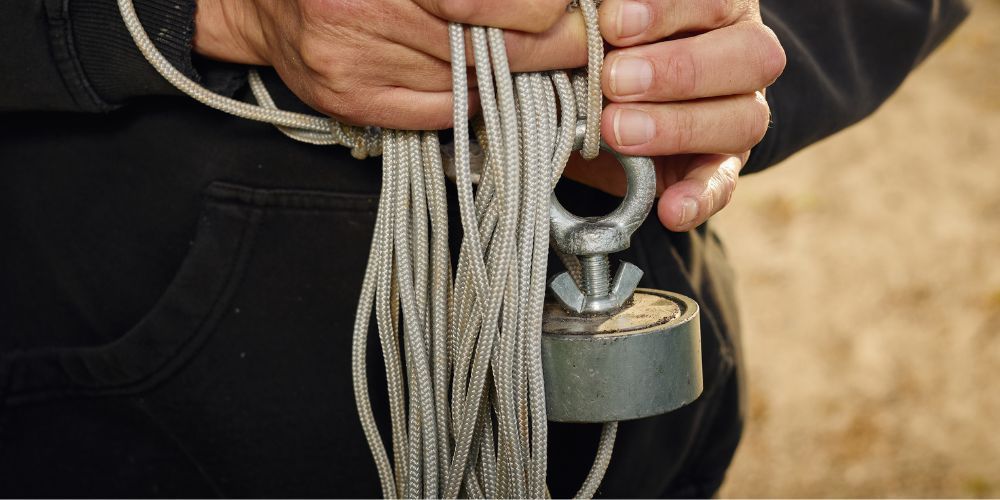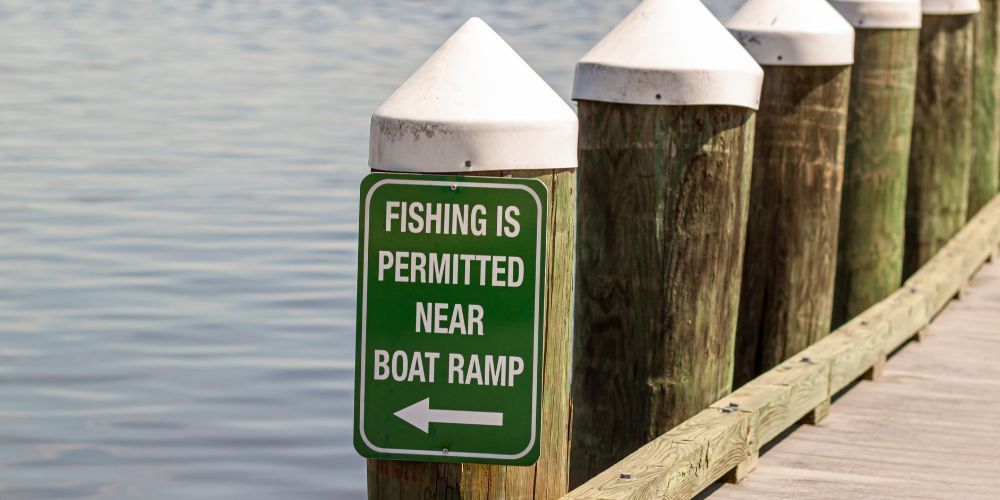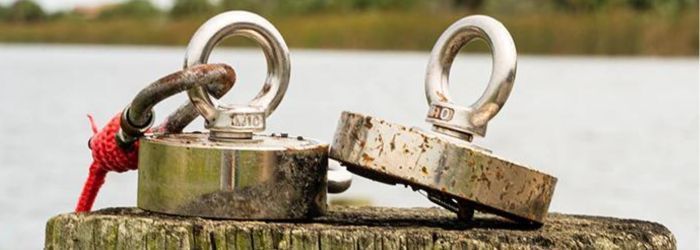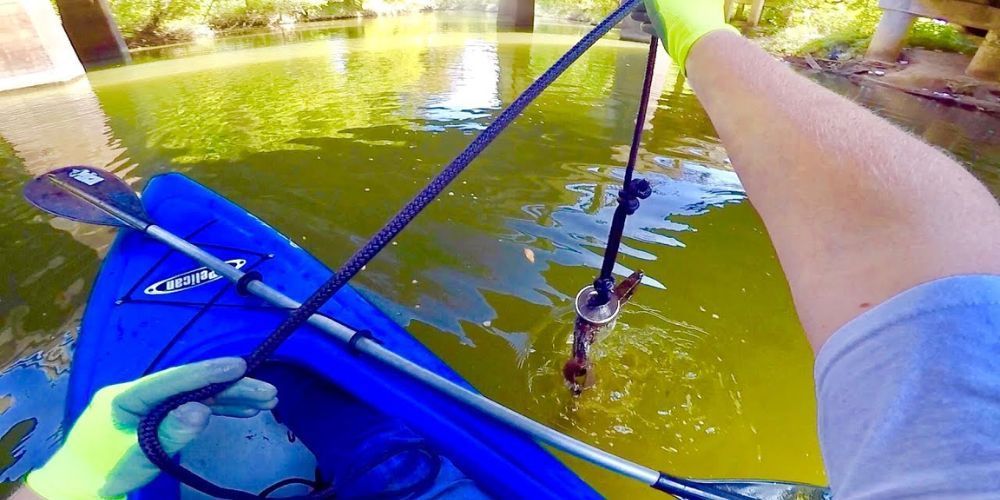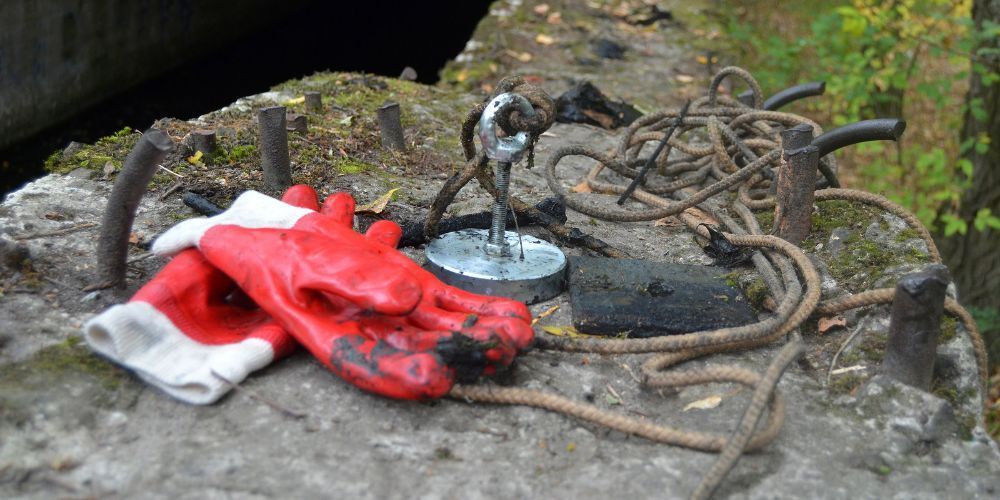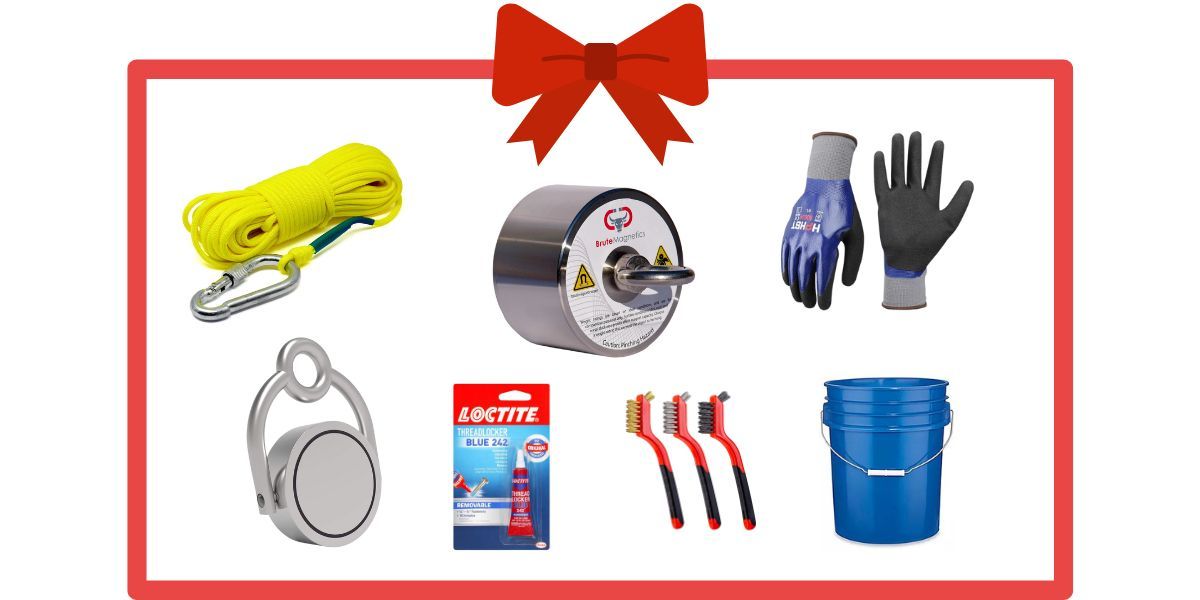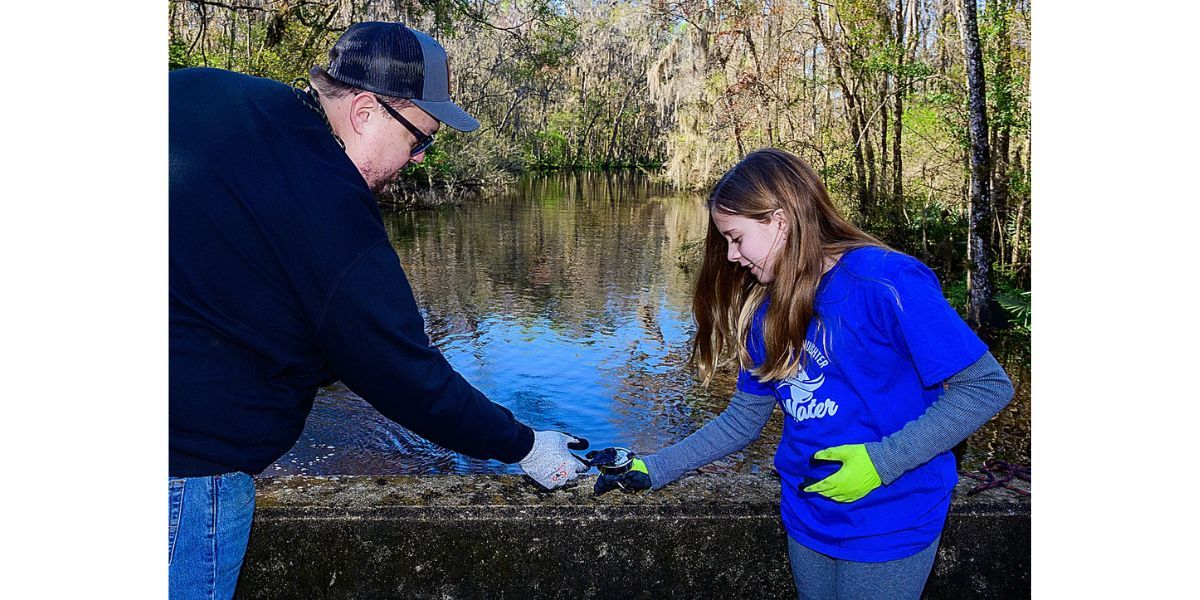Is Magnet Fishing Legal? Know the Rules and Regulations
Navigating the legal waters of magnet fishing can often feel like a daunting task. While it’s an incredibly fun and rewarding hobby, it’s important to dive into the regulations that accompany it to stay clear of any unwarranted trouble. Are you unsure whether your magnetic treasure hunting is on the right side of the law? Keep reading! This post will anchor you in knowledge, walking you through everything you need to know about the legality of magnet fishing around the globe. Let's embark on this journey together, ensuring our adventurous hobby also remains a legal one.
Yes, magnet fishing is generally legal in many places, including the United States. However, it's important to note that laws regarding magnet fishing can vary by state and even within specific regions. It is advised to check with local authorities or park offices for specific rules and regulations regarding magnet fishing in your area to ensure compliance with any applicable laws.
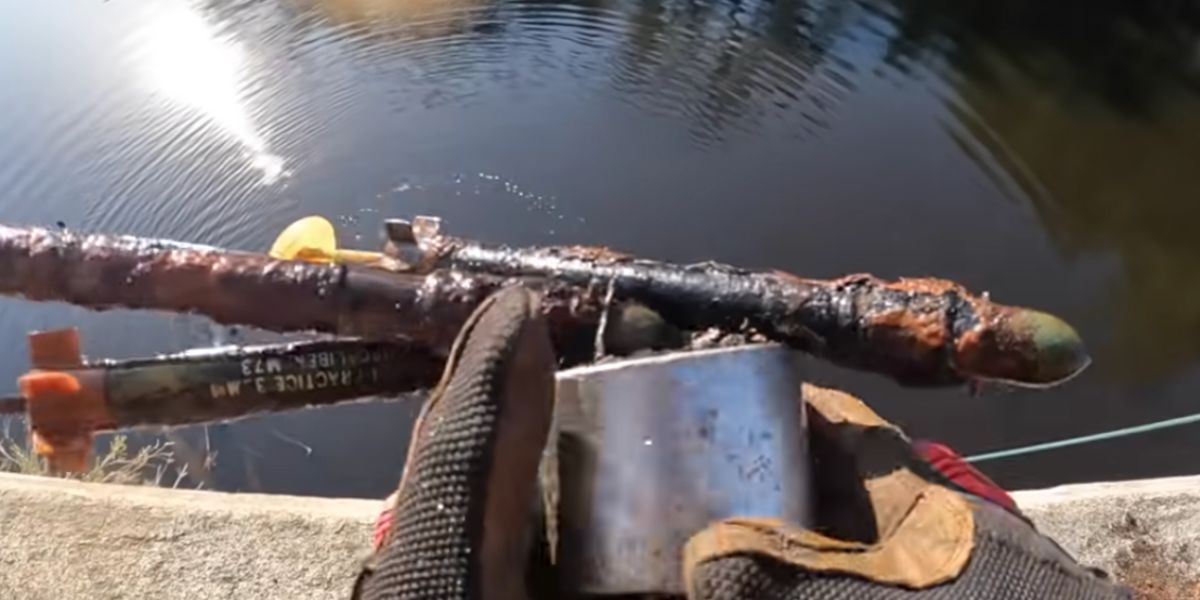
Is Magnet Fishing Legal?
Magnet fishing, the intriguing hobby of using a powerful magnet to retrieve items from bodies of water, has gained popularity across the United States in recent years. But is it legal? The answer to that question depends on various factors, including federal and state regulations. While magnet fishing itself is generally legal, there are certain laws and restrictions that enthusiasts need to be aware of to ensure they are engaging in the activity responsibly and within the bounds of the law.
It's important to note that laws and regulations regarding magnet fishing can vary by state. Each state may have its own specific rules and requirements, so it is crucial for magnet fishers to familiarize themselves with the laws of their particular location before embarking on any magnet fishing expeditions. General rules regarding trespassing and removing property from waterways must also be followed.
Furthermore, while the act of magnet fishing may be legal, it is usually prohibited to remove historical artifacts from state waters without a permit. Historic artifacts are typically defined as objects over 100 years old. Permission may also be required for magnet fishing on private property. Therefore, checking local ordinances and artifact definitions is essential before engaging in this hobby.
For example, in some states like Texas, magnet fishing is legal as long as certain conditions are met, such as obtaining permission if fishing on private property or obtaining permits if attempting to remove historical artifacts. However, in states like California, removing any object from state waters without prior authorization is strictly prohibited.
Now that we understand the importance of knowing state-specific regulations for magnet fishing, let's explore the federal and state regulations in more detail within the United States.
Check out our state by state guide on laws and regulations for magnet fishing.
Federal and State Regulations in the USA
In the United States, magnet fishing falls under the jurisdiction of both federal and state regulations. While federal laws primarily focus on matters related to waterways and navigable waters, individual states have the authority to enact their own legislation regarding magnet fishing.
It is important to highlight that the regulations can vary significantly from state to state. Some states may have specific definitions for artifacts and restrictions on their removal, while others may have more lenient laws. For example, in Ohio, the Department of Natural Resources requires a regular fishing license for individuals engaging in magnet fishing. In Virginia, the Virginia Department of Wildlife Resources recommends having a fishing license when magnet fishing due to the intention of retrieving something from the water.
To further illustrate these differences, let's consider the example of New York. The state strictly prohibits removing any objects from state waterways without authorization, and historical artifacts cannot be disturbed or removed without a permit. On the other hand, neighboring Pennsylvania allows magnet fishing as long as no historical or valuable artifacts are removed, and private property rights are respected.
It is crucial for magnet fishers to research and fully understand the regulations within their own state in order to comply with the law. This helps ensure that they enjoy this fascinating hobby while also prioritizing safety and preservation.
- According to a survey conducted in 2022, approximately 35% of magnet fishers expressed confusion over the legality of magnet fishing in their respective states.
- A study published in 2023 stated that only around 25% of people practicing magnet fishing consult their respective local laws beforehand.
- Research from 2022 showed that an estimated 38% of magnet fishers reported accidentally finding historical artifacts, indicating the need for more clarity on what can be legally retrieved.
Legal Status in Other Countries
While magnet fishing is a growing trend in the treasure hunting community, it's essential to note that laws surrounding this activity vary from country to country. What may be legal in one nation might be prohibited in another. It's crucial for magnet fishers to familiarize themselves with the specific regulations and seek permission if necessary before engaging in this hobby.
For instance, in the United Kingdom, magnet fishing has become quite popular, with enthusiasts discovering all sorts of items ranging from historical artifacts to discarded weapons. However, even there, certain restrictions apply, such as obtaining landowner consent and abiding by laws related to heritage and the environment.
In Germany, on the other hand, magnet fishing is generally allowed as long as it takes place in public spaces and doesn't interfere with naval traffic. However, certain municipalities may have additional regulations or restrictions, so it's important to research and understand the local guidelines beforehand.
It is worth mentioning that these examples are just a glimpse into the diverse legal landscape of magnet fishing worldwide. The rules can differ significantly depending on cultural practices, environmental concerns, and historical preservation efforts within each country.
Now that we've explored the legal status of magnet fishing in other countries, let's examine instances where legal issues have arisen within this fascinating hobby.
Instances of Legal Issues with Magnet Fishing
As magnet fishing gains popularity around the world, it is not without its fair share of legal complications. While there might not be specific laws directly addressing magnet fishing in many places, it's important to be cautious and aware of potential legal issues that could arise during these excursions.
One common concern involves abiding by maritime laws when near water bodies. Maritime law governs behavior and activities on the sea, including inland waters like lakes and rivers. Each country applies its own set of laws to these waters. Some regions might require permits or have restrictions regarding certain areas, such as protected wildlife habitats or historical sites.
Another legal consideration is regarding trespassing laws. It's crucial to respect private property rights and obtain permission from landowners before magnet fishing on their premises. Trespassing on private property without permission is illegal, and it's important to differentiate between criminal trespassing, which is controlled by government officials, and civil trespassing, which may require legal action.
An unfortunate example of a legal issue arising from magnet fishing occurred when an unexploded bomb was discovered in a canal during a magnet fishing expedition. The area had to be evacuated, and the bomb disposal unit had to be called in to safely handle the situation.
Handling potential dangerous items like weapons or explosives should always be done with extreme caution. If you find a weapon while magnet fishing, it's important to handle it safely and ensure that children can't access it. In such cases, contacting law enforcement will help ensure the proper authorities are involved.
While most items found during magnet fishing will likely be ordinary trash or discarded objects, it's essential to keep in mind that if you come across something of value with identification or registration information, it does not automatically become yours. Legally speaking, such items are not considered abandoned and should be returned to their rightful owners whenever possible.
Encounters of Disturbing Historical Artifacts
One fascinating aspect of magnet fishing is the possibility of unearthing historical artifacts from bodies of water. However, it's important to approach these encounters with caution and respect. While discovering pieces of history can be exciting, it's crucial to remember that disturbing or removing certain artifacts may be illegal or ethically questionable. For example, if you come across relics that are protected by cultural heritage laws, they should not be removed from their original location. Instead, contacting local authorities or historical preservation organizations is advised, as they can properly assess and deal with such findings.
Imagine that while magnet fishing in a nearby lake, your magnet pulls up a rusted metal box. Upon opening it, you find a collection of old coins and jewelry. While it may be tempting to keep these items as souvenirs or sell them for profit, it's essential to consider the historical value they hold. These artifacts could shed light on past events, allowing us to learn more about our communities and heritage.
Now that we understand the importance of engaging responsibly when encountering historical artifacts, let's dive into the topic of permit requirements for magnet fishing.
Understanding Permit Requirements
When engaging in magnet fishing activities, it's crucial to familiarize yourself with any permit requirements set forth by local authorities or governing bodies. The regulations surrounding magnet fishing can vary depending on your location and the specific body of water you intend to fish in. Some areas may require a fishing license, while others may have specific rules established for this unique activity.
It is strongly recommended to check with the pertinent authorities or visit their official websites to obtain accurate information regarding permits and regulations applicable in your area. In Virginia, for example, having a fishing license is highly recommended when magnet fishing in case a park ranger or authority figure requests one. On the other hand, in Ohio, a normal fishing license is required for magnet fishing as stated by the Department of Natural Resources.
By understanding and adhering to permit requirements, you can ensure that your magnet fishing adventures are in compliance with the rules and regulations set forth by local authorities. This not only helps promote responsible magnet fishing practices but also ensures the preservation of natural habitats and historical sites.
Safe Practices and Ethics in Magnet Fishing
As with any hobby or activity, it's essential to practice safe and ethical behavior when engaging in magnet fishing. While it can be an exciting and rewarding pastime, it's crucial to consider the potential risks involved and show respect for the environment and others. By following some basic guidelines, magnet fishers can ensure a safe and enjoyable experience while minimizing harm to themselves and the ecosystem.
First and foremost, always prioritize safety. This means wearing appropriate protective gear such as gloves to protect your hands from sharp or rusty objects that may be retrieved. Sturdy shoes are also recommended to protect your feet in case you step on something hazardous. Additionally, consider fishing with others rather than alone as a safety precaution.
Imagine you're out magnet fishing alone along a riverbank, eager to see what treasures await you beneath the water's surface. Suddenly, your magnet latches onto something heavy, and you begin pulling it towards you. But what if that object is too heavy for one person? Having a friend or companion by your side ensures there's assistance available if needed.
Furthermore, it's important to research and understand the local laws and regulations regarding magnet fishing in your area. Some bodies of water may have restrictions or prohibited areas due to environmental concerns or cultural protection laws. Being aware of these regulations helps preserve the natural balance of aquatic ecosystems while avoiding legal complications.
Respect for the environment is another key aspect of ethical magnet fishing. When casting your magnet, avoid areas where sensitive habitats or endangered species may be affected. Always clean up after yourself and dispose of any trash properly. Remember, we want to leave the environment in better shape than we found it.
Think about it like this: when you visit a pristine beach or park, you wouldn't want to see litter scattered across the sand or trails, right? The same principle applies here. Showing respect and taking care of our surroundings ensures that future magnet fishers can enjoy the same experience.
Lastly, it's essential to be mindful of the items you retrieve from the water. While magnet fishing can uncover unique finds, it's important not to keep or sell any illegal or stolen objects. If you come across something suspicious or potentially dangerous, contact local authorities and let them handle it appropriately. This way, you contribute to maintaining a safe and lawful environment for everyone.
By adhering to these safe practices and ethical guidelines, we can ensure that magnet fishing remains an enjoyable and responsible activity for all enthusiasts. Remember, our actions have consequences, so let's make sure they are positive ones.
Author: Will Flaiz


